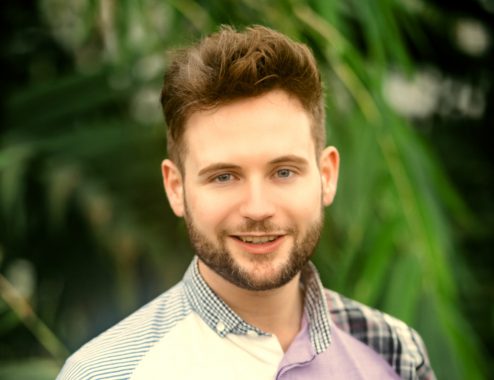‘So you’re married?’
‘Yes, I am.’
‘And your partner, are they a man or a woman?’
‘Well, they’re a man.’
‘Oh, can I ask you something else?’
‘Of course…’
‘My son has just come out, I’m trying to support them, but I’m not sure where to turn, do you have any advice?’
Now I’m not sure whether it was the rainbow lanyard, some of the LGBT badges pinned to it or the shiny silver boots on my feet, but, rightly, this patient had hedged their bets on the fact that I might be able to provide some insider knowledge around their concern.
Coming out can be a tough journey, even if you’re in the lucky position of having supportive friends and family around you. Coming out is also a journey that doesn’t end. As this consultation shows, every day LGBT+ people are confronted with situations where they have to make decisions on how much of themselves to share, hedging their own bets around the responses they may receive.
As we enter Pride season 2020 at a time when we’re all trying to handle the impact of Covid-19, for LGBT+ people, coming out and our journey thereafter has just got harder. Lockdown might mean isolating with family you’re not out to or who are unaccepting of your identity; it might mean a loss of key support networks or ‘chosen families’; and it might mean the loss of essential safe spaces outside of the home. Isolation, mental health, personal safety, substance misuse and other issues experienced by many LGBT+ people all appear to have been exacerbated by the pandemic, highlighted in new research from the LGBT Foundation.
It’s our responsibility to ensure that tackling inequality is a vital chapter within rewriting the general practice rulebook
‘I can’t be myself, I can’t come out and I’m hurting inside. Prior to the crisis, I was due to move into supported living, but now this lockdown means I’m stuck in limbo.’
‘I’m queer, black and disabled, and I’m really worried about the health inequalities I’ll face if I get ill.’
‘I came out as trans only a month before the crisis started. Life now feels like a new closet and I hadn’t really got used to being out in the first place.’
These are just a few of the voices captured in the early data, which makes for stark reading. With the long-term impact of Covid-19 on the economy looking bleak, it’s likely that many of the services and safe spaces so important to the LGBT+ community may never open again. This is true for all minority groups and is something that we as GPs will have to deal with the consequences of as our patients come to depend on our support more than ever before.
Pride began as a riot and as protests take place in the USA, UK and around the world following the unjust death of George Floyd, the importance of identity and intersectionality is at the forefront of many of our minds. Thinking back to that conversation about my patient’s son coming out, I worry that our new ways of working digitally and remotely might mean important visual clues, which help to create psychologically safe spaces, could be missed. For LGBT+ people, things such as lanyards, rainbow flags and visible allies can play an important part in improving access to services, but similar affirmative symbols are important for all minority groups.
As we begin to rewrite the general practice rulebook in response to Covid-19, it’s our responsibility to ensure that tackling inequality makes up a vital chapter within this. Creating virtual safe spaces, championing diverse leadership and co-producing solutions with communities is how I would kick off this chapter, but the rest is up to all of us to write together.
It takes more than a pandemic to stop Pride and protests, but perhaps the pandemic will be a catalyst for us to truly tackle the inequalities that began and drive these movements.
Dr Anthony James is a GP trainee in north London. You can follow him on Twitter at @DrAnthonyJames
Pulse July survey
Take our July 2025 survey to potentially win £1.000 worth of tokens












